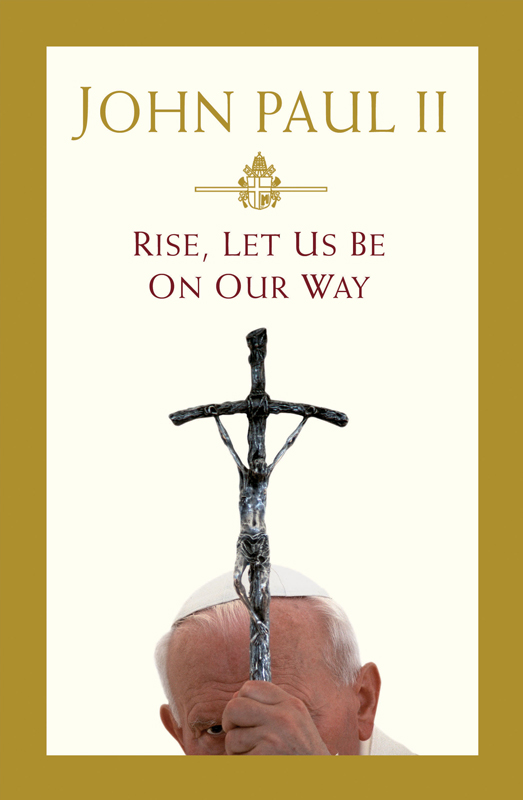
Rise, Let Us Be on Our Way
کتاب های مرتبط
- اطلاعات
- نقد و بررسی
- دیدگاه کاربران
نقد و بررسی

September 1, 2004
Pope John Paul II leads over one billion Catholics worldwide, but he thinks of himself as a loving father figure. In this meditative book, he invokes the titular phrase (words that Jesus Christ used in the Garden of Gethsemane to call his disciples to him) to urge readers to "go forth full of trust in Christ." The Pope describes how he himself has done so and starts this book where Gift and Mystery (1996) left off--with his ordination as a bishop in Poland in 1958. The first chapters are the most strictly autobiographical, but he quickly turns to matters of faith, discussing everything from the spiritual meaning of a bishop's miter and crosier to the need for clergy to talk with scientists and other intellectuals. Naturally, since he has served as a bishop (of Krakow, of Rome) for almost 50 years, the Pope devotes a lot of space to a bishop's duties. His discussion of these duties provides openings for him to remember important occasions in his past, such as his pastoral visit to the shrine of Our Lady of Guadalupe in Mexico. Later chapters deal with the Second Vatican Council, which he participated in as a young bishop. The prose style is that of a many-faceted sermon, with Biblical quotations woven throughout and themes such as the importance of telling the truth, staying celibate and giving to charity heavily reinforced. Although the book occasionally feels like a guide to the Episcopal ministry, it's sure to gratify those hungry for his instruction and inspiring faith, as well as non-Catholics interested in his philosophy.

February 1, 2005
Here, Pope John Paul II recounts his ordination as bishop in 1958 and service in the episcopacy until being elected pope in 1978. This book could be called a sequel to his reflections on his early years in the priesthood, Gift and Mystery. The new text has a formal, catechism-like quality, with frequent scripture references, pietisms, and explications. However, John Paul's delineation of episcopal responsibilities offers some insight into his particular style as a charismatic leader of the Church. We also see a personal side of John Paul in his descriptions of countering efforts by the Communist regime in Poland to suppress the Church. In his poetic meditation on the Polish St. Stanislaus, John Paul says, "I want to describe my Church in which, for centuries, / the word and the blood go side by side, / united by the hidden breath/ of the Spirit." The paradox of simplicity of "faith responsibility and courage" in conjunction with sophisticated leadership is illumined. This book will interest Catholics and Christians committed to fuller ecumenical understanding.-Sheila Peiffer, Acad. of the Holy Names, Albany, NY
Copyright 2005 Library Journal, LLC Used with permission.

























دیدگاه کاربران